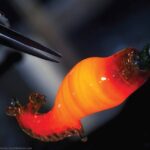(Reuters)—A groundbreaking deal between Allergan Plc. and a Native American tribe to shield the company’s patents in administrative proceedings could also be used be to protect them from challenges in federal court, legal experts say, potentially dealing a blow to generic competition.
Allergan said on Friday it had transferred patents on its blockbuster dry eye medicine Restasis to the St. Regis Mohawk Tribe, which will exclusively license the patents back to the company in exchange for ongoing payments.1 The deal takes advantage of the fact that the tribe is treated as a sovereign nation immune to civil lawsuits.
In announcing the deal, Allergan said it believed the Restasis patents would no longer be subject to review by the U.S. Patent Trial and Appeal Board, an administrative court empowered to cancel patents through a process called inter partes review. The company said it would not claim immunity in an ongoing lawsuit in federal court by generic manufacturers seeking to revoke the same patents.
“This was directed at and only affects the flawed IPR process,” Allergan Chief Executive Brenton Saunders said in an interview.
But judges across the country have found tribal immunity applies to litigation in federal court. That means other brand-name drug companies could be motivated to follow Allergan’s lead and transfer their patents to tribes, severely limiting generic manufacturers’ ability to challenge those patents.
Drugs made by brand-name manufacturers like Allergan, Pfizer Inc. and Merck and Co. are usually protected by patents for up to 20 years after they are introduced. But generic companies can bring their versions to market earlier if they can successfully sue to have those patents invalidated.
The price of a drug drops dramatically once generic versions enter the market. Restasis sales were $1.4 billion last year.
The Patent Trial and Appeal Board, which Congress created in 2011 to make it easier and cheaper to challenge patents, has been embraced by generic drug companies. Earlier this year, the board invalidated some of the patents held by Abbvie Inc on its $16 billion immunosuppressant Humira, raising the possibility of low-cost competition for the country’s best-selling drug.
Challenging patents in federal court is slower and more expensive, though generic companies certainly do it. Teva Pharmaceuticals Inc and other generic drug companies are suing Allergan in federal court seeking a ruling that the latter’s Restasis patents should not have been granted in the first place because they cover obvious concepts.
Michael Carrier, a professor at Rutgers Law School, says drug companies may fear a public outcry if they use tribal immunity to remove their patents from scrutiny by both the board and federal court. A spike in drug prices, for example, could lead Congress to pass a law limiting the scope of that immunity in such cases.
Saunders notes the industry is unlikely to try to shield its patents from federal court litigation. “I’d be very cautious about creating this parade of horribles,” he says.
But Rachel Sachs, a patent law professor at Washington University in St. Louis, says it was likely only a matter of time.
“[After] the industry begins engaging in a practice, even at a low level … there are actors who will take it to its logical extreme,” she says.
Reference
- Allergan Plc. News release: Allergan and Saint Regis Mohawk Tribe announce agreements regarding Restasis patents. 2018 Sep 8.
